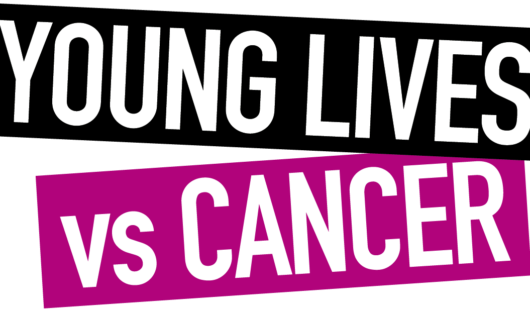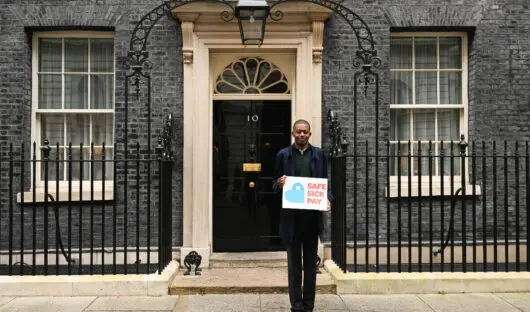Posted on Friday 4 July 2025
Young Lives vs Cancer Responds to the 10-Year Health Plan for England
The UK Government has published (Thursday 3 July) “Fit For The Future”, the 10-Year Health Plan for England, setting out their strategic direction to transform health services, and achieve a model of care that delivers on their health mission for patients.
Young Lives vs Cancer continue to analyse the details within the Plan to understand the impacts and benefits for children and young people with cancer and their families, and implications for the upcoming National Cancer Plan for England.
Rachel Kirby-Rider, Chief Executive at Young Lives vs Cancer, initially reflects on the Plan’s publication:
We welcome the 10-Year Health Plan for England and recognise its importance in addressing the challenges in the health service, and crucially, setting an ambitious direction for improving care, experiences and outcomes for patients.
We hope to see this ambition reflected and built on through the upcoming National Cancer Plan – our once in a generation opportunity to truly transform cancer care.
One ambition in particular has already stood out to me – to “abolish ‘one size fits all’ care”, and this is absolutely vital when it comes to cancer. Children and young people’s needs are different from older adults – now is the time to make the decisive choice to give them the focus they need and deserve and intentionally address their unique experiences, not just as a by-product of adult-focused interventions.
The 10-Year Health Plan gives hope that children and young people will be an equal priority to adults in the National Cancer Plan, but we must continue the ambition this Plan has set – children and young people with cancer can’t wait any longer for the change they need.
Importance of Children and Young People’s Health
We’re pleased to see the commitment to achieve the “healthiest generation of children ever” continued, and those living with long-term conditions recognised in the Plan. But it is essential these children and young people don’t get lost amongst the backdrop of prevention and healthy lifestyle-focused interventions, as many conditions including cancer are often not preventable or driven by these lifestyle factors like in older populations. The National Cancer Plan must fully recognise this and ensure children and young people’s unique circumstances are prioritised.
Reflecting on the “Hospital to Community” Shift
The biggest change may be the introduction of Neighbourhood Health Services to shift care closer to home, intended to free-up hospitals for those who need them. These come with the promise that people with long-term conditions will have teams made up of a range of professions to help manage their care together. Seamless communication and collaboration between local and specialist hospital services will be essential so no element of care falls through the gaps. Importantly, the focus on equity, access and investment in GPs needs to result in better identifying cancer in children and young people to shift the balance on early diagnosis – one of the biggest challenges that must be tackled.
However, we cannot lose sight that majority of children and young people’s cancer care will, at least for the foreseeable future, need to be provided in specialist hospitals usually far from home, and patients are already struggling to get there because of the costs of travel. So, whilst more care in communities is a positive shift, and will support with some aspects of their care, a crucial question still remains – will the National Cancer Plan commit to the Young Cancer Patient Travel Fund, desperately needed to ensure no child or young person misses or delays their treatment and care?
A Bigger Boost for Psychosocial Support Needed
The Plan makes clear that addressing the continued challenges in children and young people’s mental health remains a priority. There is also applauded recognition of the role that financial support (such as the Healthy Start scheme and the benefits of employment) plays in driving health outcomes – from the means to live a health life, to being able to travel to access healthcare.
Psychosocial support is an essential foundation to good health, so why not be bolder, move further and faster, to give people the support they need to manage their health? The National Cancer Plan must take these foundations and commit to a cross-government approach to financial support, education, employment, mental wellbeing and more, because for children and young people with cancer, it is more than medical.
Addressing the Cancer Challenge
Whilst not a specific cancer plan, the 10-Year Health Plan acknowledges some of the challenges in cancer care. Weaved throughout it are positive and innovative commitments which will help drive improvements in outcomes and experiences for all people with cancer. From early diagnosis to innovative cancer vaccines, the recognition that cancer is a key factor in the wider health landscape is reassuring in advance of the National Cancer Plan. In particular, it’s welcome to see promises of genomics and precision medicine, including childhood genomic testing specifically, take a spotlight in the Plan.
Digital and Patient-Centred
We’re pleased to see the NHS App feature heavily in the Plan, accompanied by commitments to a Single Patient Record and MyCare to keep health records in one place. Importantly, we hope that these will reduce the admin burden young people and families face throughout their cancer care, often repeating themselves and having to keep their own records, whilst empowering them as informed partners in their care. We welcome this commitment, alongside the Single Unique Identified for children being passed through Parliament at the moment, which we have long championed alongside sector colleagues on the national CYP Health Policy Influencing Group.
Much welcomed is also the strong expectation the Plan sets for patient voice and choice to drive quality of care, and for them to be partners, not just participants, in their care. We await with hope the shift that the new National Director of Patient Experience will bring across the health service.
These details speak to another of the Plan’s intentions – “getting basics right”, and we expect the same from the National Cancer Plan.
Where More Detail is Needed
The Plan commits to reducing the number of Integrated Care Boards (ICBs) through consolidation. ICBs are responsible for commissioning services in their area, and were recently given responsibly over a range of specialist services including children and young people’s cancer services. We urgently need clarity over what this change in structure means for these important services, especially in light of wider changes to NHS England.
Whilst ambitious, bold and a rallying cry for change, the Plan lacks some detail on how it will be implemented and delivered, including how the Government will make sure their promises for patients to be partners over the next 10 years will be followed through. And lighter on detail is how charities will be partners through the Plan’s life-cycle.

